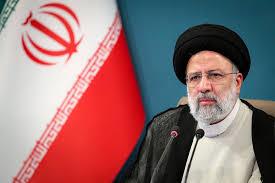Ebrahim Raisi, the eighth President of Iran, assumed office in August 2021 amid a backdrop of economic sanctions, social unrest, and diplomatic isolation. This article explores Raisi’s political journey, his administration’s policies, and the broader implications for Iran and the international community Iranian President Ebrahim Raisi.
Early Life and Rise to Power
Born in 1960 in Mashhad, Iran, Ebrahim Raisi grew up in a religious family. Islamic studies deeply rooted his early education, and after the 1979 Islamic Revolution, he quickly rose through the country’s judicial ranks. Known for his conservative views and close ties to the Supreme Leader, Ayatollah Ali Khamenei, Raisi’s career includes serving as the Attorney General of Iran, Deputy Chief Justice, and Chief Justice. With significant support from conservative factions within Iran’s political landscape, he made his ascent to the presidency Iranian President Ebrahim Raisi.
Political ideology and domestic policies
Raisi’s political ideology is staunchly conservative, advocating for a return to the fundamental principles of the Islamic Revolution. Domestically, his presidency has focused on combating corruption, addressing economic woes, and reinforcing Islamic values in public life.
Economic Challenges and Responses
One of the most pressing challenges for Raisi’s administration has been Iran’s struggling economy, burdened by hyperinflation, unemployment, and a depreciating currency. As a result, his government has prioritized self-reliance, promoting local production to circumvent international sanctions primarily imposed due to Iran’s nuclear program. Additionally, Raisi has sought to reform Iran’s banking sector and introduced welfare programs aimed at alleviating the economic pressure on the lower and middle classes Iranian President Ebrahim Raisi.
Social policies and public responses
On the social front, President Raisi has enforced policies that reflect his conservative stance, particularly in areas of media censorship and dress codes. These policies have sparked both support and significant opposition within the younger and more progressive segments of the population, who often view these measures as regressive.
Foreign policy and diplomatic endeavors
Raisi’s foreign policy has been characterized by a mix of confrontation and diplomacy. While maintaining a hardline stance against Western countries, particularly the United States, he has also sought to strengthen ties with neighboring countries and non-Western powers like Russia and China Iranian President Ebrahim Raisi.
Nuclear Deal Negotiations
A significant aspect of Raisi’s presidency has been the ongoing negotiations around the Joint Comprehensive Plan of Action (JCPOA), commonly known as the Iran Nuclear Deal. His administration has taken a firm position, demanding the lifting of all sanctions as a precondition for Iran’s full compliance with the agreement.
Regional Influence and Military Strategy
Under Raisi, Iran continues to exert considerable influence in the Middle East with the support of allied groups and nations, reflecting its strategic aim to counterbalance Western and Saudi influence. This approach has implications for regional stability and has kept Iran at the center of geopolitical discussions Iranian President Ebrahim Raisi.
Human rights and international scrutiny
President Raisi’s administration has faced international criticism over human rights issues, particularly concerning freedom of speech, women’s rights, and the treatment of political prisoners. These concerns have impacted Iran’s relationships with European nations and international bodies, which continue to press for improvements in human rights practices.
Conclusion
As Ebrahim Raisi continues his term, the domestic and international response to his policies will significantly shape the future trajectory of Iran. While he champions a return to conservative values and self-reliance, the broader implications of his administration’s policies remain a subject of vigorous debate both within Iran and across the world. His leadership will undoubtedly play a critical role in defining Iran’s position on the global stage, particularly in relation to ongoing tensions over its nuclear program and regional activities Iranian President Ebrahim Raisi.
